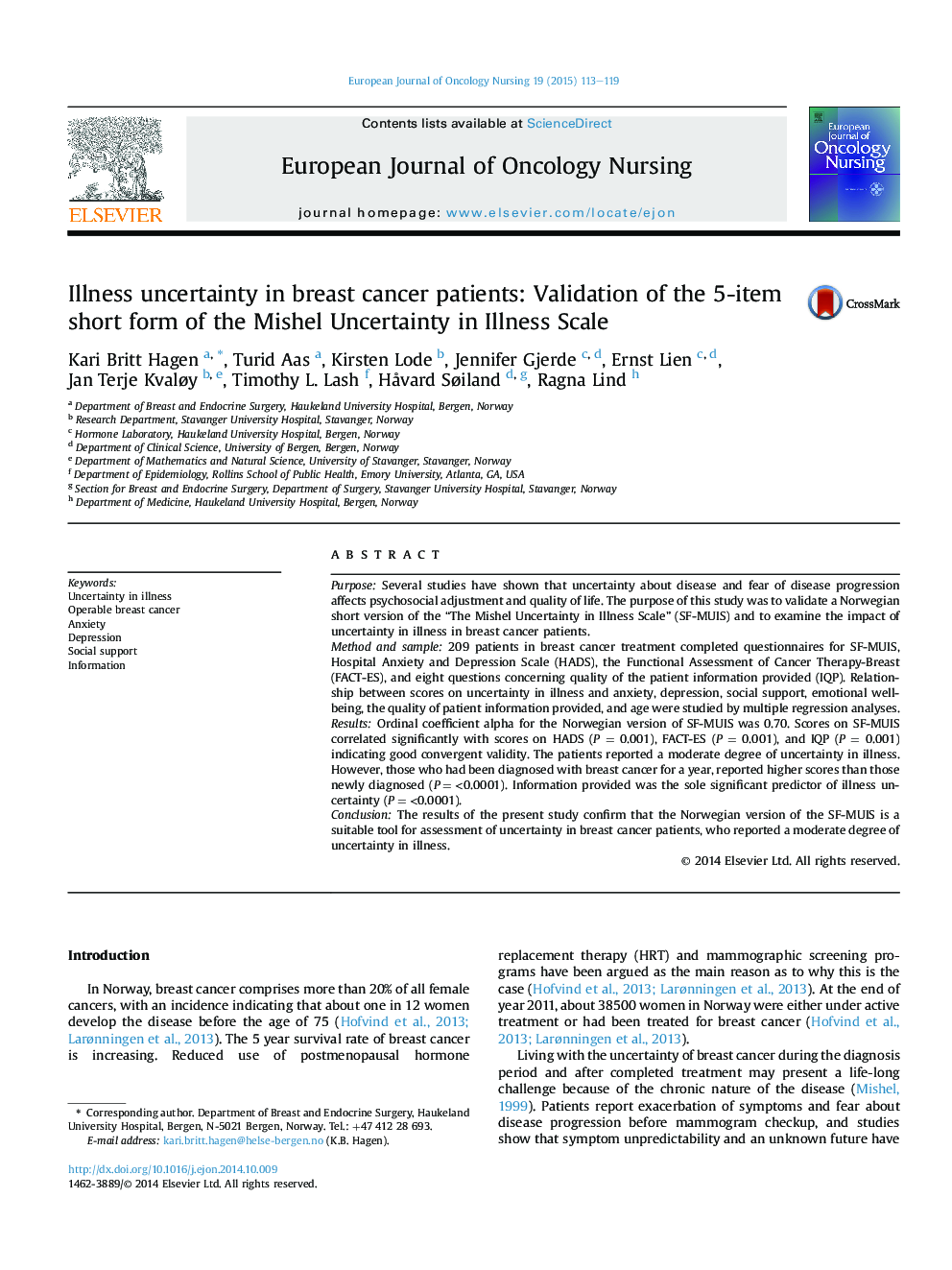| Article ID | Journal | Published Year | Pages | File Type |
|---|---|---|---|---|
| 2647564 | European Journal of Oncology Nursing | 2015 | 7 Pages |
PurposeSeveral studies have shown that uncertainty about disease and fear of disease progression affects psychosocial adjustment and quality of life. The purpose of this study was to validate a Norwegian short version of the “The Mishel Uncertainty in Illness Scale” (SF-MUIS) and to examine the impact of uncertainty in illness in breast cancer patients.Method and sample209 patients in breast cancer treatment completed questionnaires for SF-MUIS, Hospital Anxiety and Depression Scale (HADS), the Functional Assessment of Cancer Therapy-Breast (FACT-ES), and eight questions concerning quality of the patient information provided (IQP). Relationship between scores on uncertainty in illness and anxiety, depression, social support, emotional well-being, the quality of patient information provided, and age were studied by multiple regression analyses.ResultsOrdinal coefficient alpha for the Norwegian version of SF-MUIS was 0.70. Scores on SF-MUIS correlated significantly with scores on HADS (P = 0.001), FACT-ES (P = 0.001), and IQP (P = 0.001) indicating good convergent validity. The patients reported a moderate degree of uncertainty in illness. However, those who had been diagnosed with breast cancer for a year, reported higher scores than those newly diagnosed (P = <0.0001). Information provided was the sole significant predictor of illness uncertainty (P = <0.0001).ConclusionThe results of the present study confirm that the Norwegian version of the SF-MUIS is a suitable tool for assessment of uncertainty in breast cancer patients, who reported a moderate degree of uncertainty in illness.
